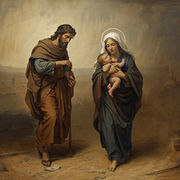Saint Paul’s Words on the Eucharist
- Jun 17, 2022
- 4 min read
Pastor’s Column
Corpus Christi 2022
“Brothers and sisters: I received from the Lord what I also handed on to you, that the Lord Jesus, on the night he was handed over, took bread, and, after he had given thanks, broke it and said, “this is my body that is for you. Do this in remembrance of me.” In the same way also the cup, after supper, saying, ‘this cup is the new covenant in my blood. Do this, as often as you drink it, in remembrance of me.’ For as often as you eat this bread and drink this cup, you proclaim the death of the Lord until he comes.”
1 Corinthians 11:23 – 26
Why does St. Paul mention the Eucharist here in 1st Corinthians (one of his 1st letters) and not in most subsequent letters? Does this mean that they weren’t celebrating Eucharist if he doesn’t mention it?
No, the reason it’s mentioned in 1st Corinthians is because they were having big problems with Eucharist there. St. Paul generally talks about things that are problems and issues. In other letters, it is taken for granted that they are celebrating Eucharist weekly. Here the Corinthians have many problems and St. Paul is identifying and trying to solve them.
You will notice also that the Creed does not have any mention of the Eucharist. Why is that? Was it because nobody was celebrating Eucharist in the early church?
No, but each line of the Nicene Creed represents a controversy in the church that needed to be corrected. There were no controversies about the Eucharist in the early church because everybody basically believed the same thing. Thus there was no reason to add the Eucharist to the Creed. In fact, in almost all cases there was no disagreement about the nature of the Eucharist until the Protestant Reformation.
“I received from the Lord what I also handed on to you.”
The Eucharist is not a creation of St. Paul, no less a creation of the church. It is something the Lord gave to the church and which the church hands on. This is a very critical point. We don’t “create Eucharist”. It is not merely a human invention. There are certain key elements which must always be there, elements that even St. Paul would recognize.
The words “delivered” or “handed on”, literally, “traditioned”, are actually technical terms that indicate that this teaching is a part of the apostolic tradition and therefore cannot be changed or altered. Paul makes it very clear that this teaching goes back to the Lord himself.
St. John Chrysostom:
He says this so that you may realize the table on that night has no advantage over the table that comes after. For, in fact today, too, the Lord himself is the one who does everything and delivers it to us just as he did then. But why does Paul say that he’d received it from the Lord?
The remembering of the Eucharist.
There is a deep “remembering” associated with the Eucharist, just as the Passover is a remembering of the Exodus and the great work of God in delivering the Jews from slavery. So the Eucharist is a “remembering” of Jesus’ sacrifice on the cross for us, which is integral in why we receive the Eucharist weekly. We call this word anamnesis.
This anamnesis is not simply “remembering” but a bringing forward into the present a reality that occurred in the historical past. It makes present and has the effect of allowing us to be present at the Last Supper in this time. It means that we are all joined together in the one sacrifice. Every person of every time and place is invited to the Last Supper to participate in the Body and Blood of Christ. Though separated by time, distance and culture, we are all united because Christ is eternal, the Eucharist is eternal; and so we are connected one with the other through the Eucharist and through this remembering.
This “remembering” invites us to recall that Jesus became so poor that he was stripped of his clothes, stripped of his dignity, stripped of his rights, stripped of his innocence and stripped of his life.
He becomes and takes the form of bread and wine which is nothing, if not poor. And he depends on the poverty of waiting for our faith, waiting for us to love him, even though he could make it clearer.
So we are invited to see in the Eucharist the poor, the oppressed, the marginalized, those around us in need. Eucharist means giving to charity. Eucharist means listening to someone and taking time. Eucharist means letting someone in on the freeway. Eucharist means coming to God, not with answers, but with needs. So authentic worship leads to action!
“We proclaim the death of the Lord until he comes.” Where does this survive in the Mass today?
We say this as the mystery of faith directly after the consecration.
And there are 3 mysteries that are highlighted here:
1. Past: Jesus really died for us.
2. Present: Jesus is risen from the dead and is here right now on our altar.
3. Future: Jesus will come again.
Remembering and proclaiming go together; by proclaiming we remember and when we remember we are bound to proclaim.
Authentic remembering means imitating Christ and proclaiming him to others by our words and deeds. So we “remember” him formally at Eucharist in order to “remember” him in our lives during the week.
Father Gary
























Comments